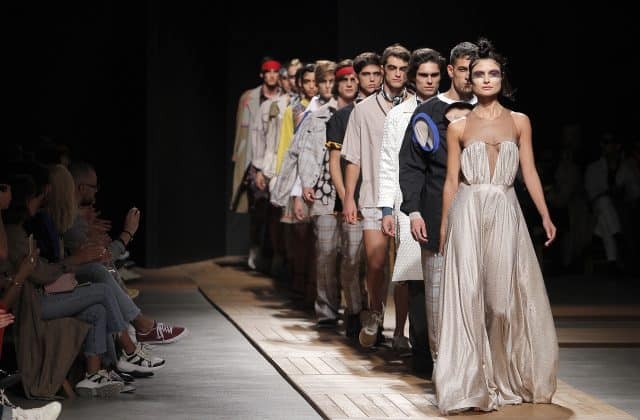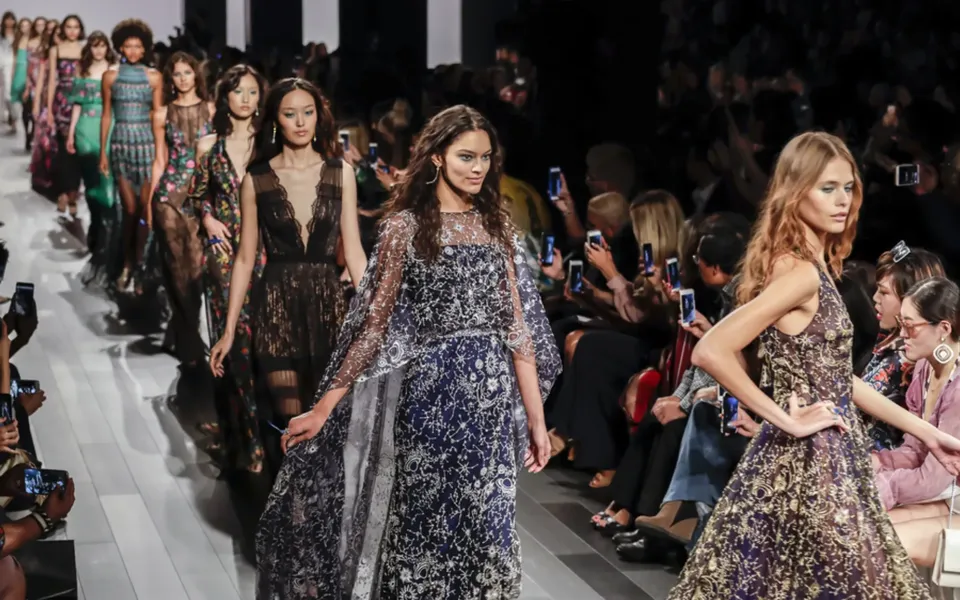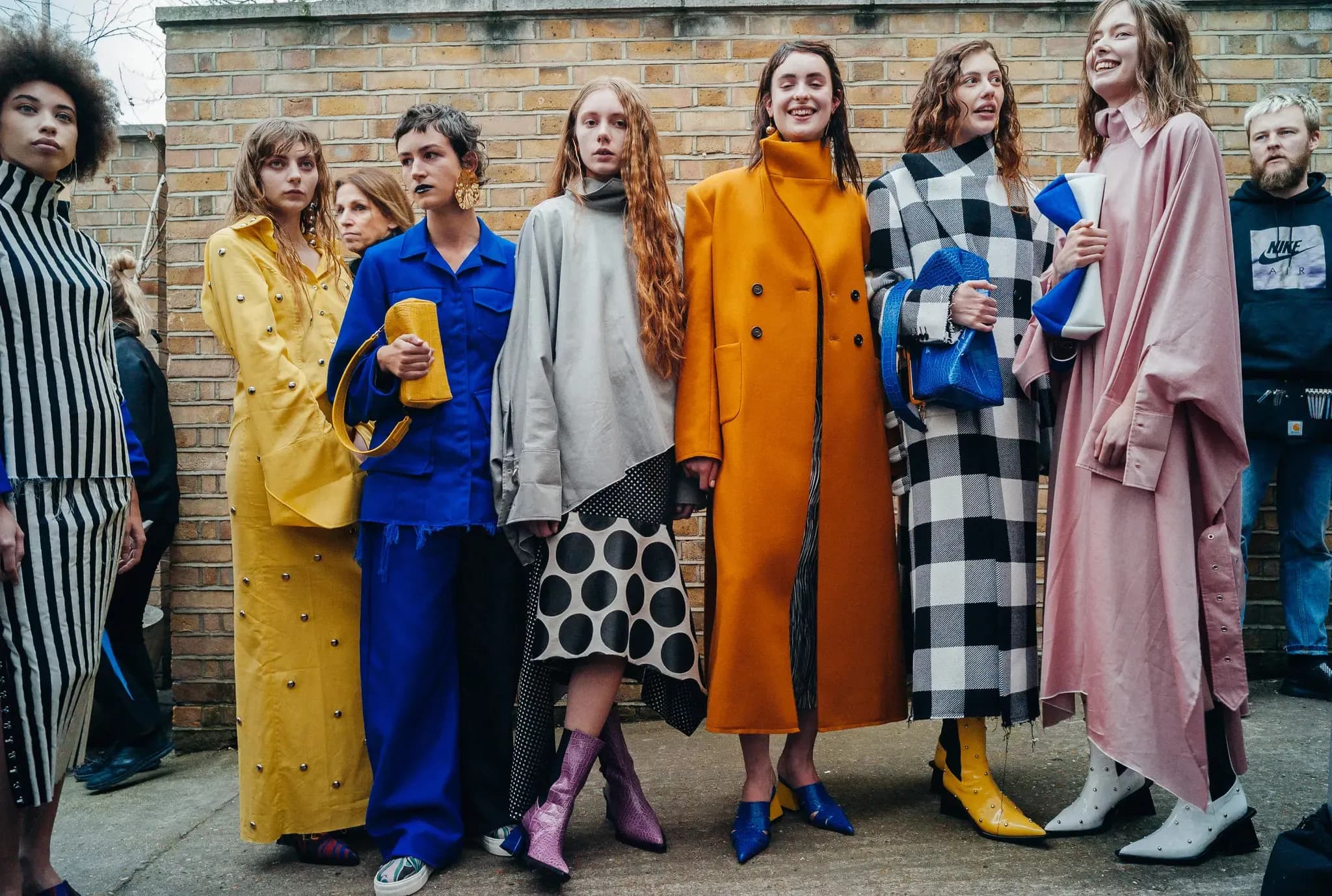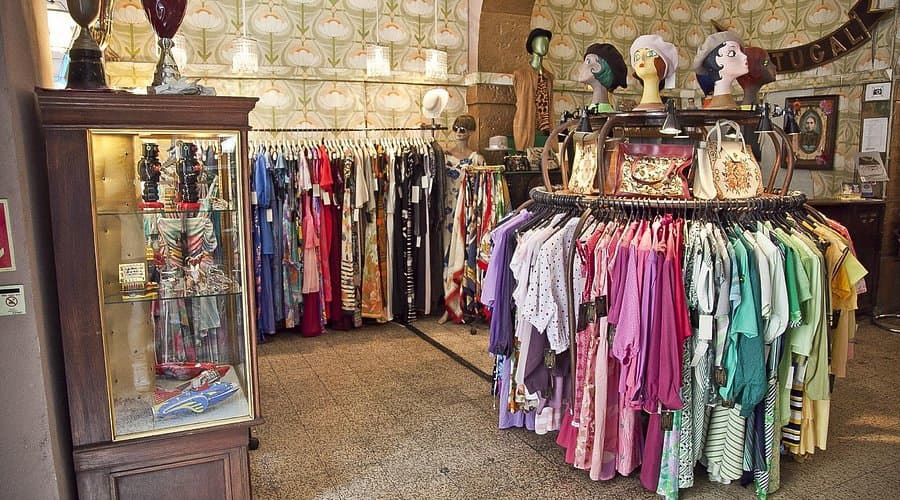
When Lisbon dons the attire of a creator and its streets transform into runways, it’s clear that ModaLisboa, the Lisbon Fashion Week, has returned ! Each season, it’s not just a celebration of fashion but a moment where Portuguese identity, innovation, art, and local culture intersect. In this article, we take you behind the scenes of Lisbon Fashion Week, providing you with everything you need to know about this haute couture event and, most importantly, why you should be there !
ModaLisboa, The Origins of a Portuguese Dream
The story begins in 1991 when two passionate individuals, Eduarda Abbondanza and Mário Matos Ribeiro, decided to launch ModaLisboa: the first independent fashion week in Portugal. The inaugural show took place in March 1991 at the São Luiz Theatre in the Chiado district. Gradually, ModaLisboa established itself as the voice of Portuguese fashion; one that dares, experiments, and questions.
Over the years, the event has moved venues : Mercado da Ribeira, Centro Cultural de Belém, Pavilhão Carlos Lopes, MUDE (Museum of Design), Pátio da Galé… Each venue change is also a way to connect with the audience, blending architecture, Lisbon’s history, and the spectacle of clothing.
The Present, ModaLisboa “CAPITAL” (Edition 64, March 2025)
For the 64th edition, the theme is “CAPITAL,” a word rich in meaning, approached from various facets : geographical (Lisbon as the capital), creative, cultural, social, economic, human. Each “capital” serves as a lens to reflect on fashion today.
From March 6 to 9, 2025, Lisbon came alive ! Between runway shows, exhibitions, workshops, “Fast Talks,” pop-up stores, and art installations… all organised in iconic locations such as Pátio da Galé, MUDE (Museum of Design), and the Gulbenkian Modern Art Centre (CAM).
For instance, the “Sangue Novo supported by Seaside” competition continued to play a central role : aimed at young creators, this competition allows them to showcase their work, receive mentorship, and gain visibility. This edition enabled the finalists to present matured collections, demonstrating structured support for the new generation.
The “Fast Talks” and “Diálogos” were also valuable moments: not just runway shows, but discussions on important current themes like sustainability, social responsibility, and technology in fashion.

© thecooltours
Designers to Watch : Talents Making Their Mark !
Each edition highlights familiar faces, but also new voices. Among the most anticipated this year :
Constança Entrudo : her collection “Second Best” was presented at CAM. She enjoys mixing references, materials, and questions the beautiful and the useful.
Gabriel Silva Barros, Duarte Jorge and Ihanny Luquessa : these young designers, finalists of the “Sangue Novo” competition, represent this fresh breeze; a blend of conceptual creativity and the desire to be commercially viable and wearable.
Established brands like Valentim Quaresma, Nuno Baltazar, Inês Barreto, Luis Onofre, Alves/Gonçalves : they play with legacy, experimentation, craftsmanship, and contemporary luxury.
A Comparison with Paris Fashion Week, Humility and Authenticity
Paris, the undisputed capital of fashion, impresses with its grand shows, historic houses, and its weight in the international industry. Lisbon Fashion Week doesn’t (yet) have that scale, but that’s precisely what makes it different; it’s closer to its audience.
In Lisbon, it’s more intimate; you feel the streets, the cafés, the artisans, the proximity of people… You see creations that breathe Portugal, traditional influences, craftsmanship, and local know-how; but also modernity, contemporary challenges (ethics, sustainability, new visual identity). Unlike Paris, where the extraordinary often prevails, in Lisbon, it’s also sincerity, character, and “it’s made here, with what we have.”
What Fashion Brings to Portugal
ModaLisboa is more than a showcase… it acts as a catalyst.
International Visibility : media, foreign buyers, influencers come to see what’s being done here, which obviously increases export opportunities.
Local Economy : textiles, leather, embroidery, textile printing, accessories; many crafts are mobilised! Fabric surpluses, the demand for sustainable materials, stimulate innovation.
Culture and Identity : fashion becomes a vector for cultural recognition. Craftsmanship, traditional patterns, Portuguese visual heritage are often revisited, reinforcing the sense of belonging and preserving the authenticity of the Portuguese identity.
Youth, Pedagogy, Communities : through the “Sangue Novo” competition, workshops, and the participation of young fashion school students, it’s a place where the future is shaped.
Memorable Stories and Moments
Over the years, ModaLisboa has been the stage for significant moments that have contributed to creating and shaping the identity of Portuguese fashion. Among them, some sustainable initiatives have particularly stood out; the most emblematic example is undoubtedly Joana Duarte (founder of the brand Behén), who built her entire universe around the reuse of old textiles: embroidered tablecloths, lace, and household linens inherited from past generations, etc. Her creations, both nostalgic and avant-garde, perfectly illustrate the soul of ModaLisboa: conscious fashion, rooted in Portuguese culture but also looking to the future!
Another strong moment: the presentation of the project Beat by Be@t, a platform dedicated to innovation and sustainability. We saw collaborations like “Eclosão” by Adriana Oliveira in partnership with Cordeiro and Campos, exploring new ways of producing using materials from surpluses or “dead stock.” This type of initiative clearly shows that Lisbon Fashion Week is not just a showcase of trends but also a creative laboratory where ecological awareness and aesthetics meet.
Finally, beyond the runways, it’s often the exchanges, workshops, and meetings that leave a lasting impression. Young creators find there a rare space for expression, and the public discovers another facet of Portugal: a country that, while honouring its vast textile and artisanal heritage, reinvents itself with boldness and authenticity.
Tips to Experience ModaLisboa Like a Local
If you’re planning to attend, here are some tips to make the most of the event :
Check the programme as soon as it’s released ! Dates, venues, who is showcasing, where and when. Some activities are free or accessible with simple reservations (Fast Talks, workshops) and are worth attending.
Arrive early or in advance at the venues : the shows aren’t all gigantic, but the atmosphere matters ! Be prepared; depending on the weather, Lisbon can be windy or rainy in March.
Don’t just settle for the runway shows : visit the pop-ups, temporary stores, exhibitions, or even the artistic interventions. That’s where you’ll discover the details, unique pieces, but also another facet of fashion.
Wear clothes that represent you but also where you feel comfortable; that allow you to walk, take photos, feel the fashion without feeling out of place.
Lastly, enjoy the city to the fullest ! Lisbon, with its trams, viewpoints, cafés, small designer shops… experiencing it during Fashion Week gives you the feeling that it lives to the rhythm of creation.
Perspectives and Challenges
ModaLisboa evolves in a rapidly changing world. The challenges are many : sustainability, ethical production chains, digital visibility, cost pressures, inclusion… The cost of production, material costs, international competition are real. But the potential is strong ! Portuguese brands are rising in quality and visibility ; the global demand for “made in Portugal,” artisanal, authentic, is growing strongly.
There’s also the challenge of making ModaLisboa accessible to all : not just professionals but the general public, whether residents, expatriates, or travellers. Efforts to multiply free access activities, pop-ups throughout the city, street exhibitions, modular fashion cafés, are all keys to achieving this. So, what are you waiting for ?
Share this article
Suggested articles

Ecolã, Portugal’s Oldest Wool Blanket Factory
Tucked away in the heart of the Serra da Estrela (more precisely, in Manteigas) Ecolã stands as a living symbol of Portugal’s rich textile heritage. Since its founding in 1925, this family-run company has beautifully combined tradition, ancestral craftsmanship and innovation, becoming the undisputed reference in burel production in Portugal.

Portuguese Designers Rising on the International Stage
Portuguese fashion is deeply rooted in a rich artisanal tradition, especially in the regions of Minho and Alentejo, where weaving, embroidery and lace-making are ancestral crafts. And good news : these techniques are still alive today !

The Must-Visit Vintage Shops in Lisbon and Porto
In both Lisbon and Porto, vintage isn’t just a fleeting trend, it’s practically a way of life. From iconic thrift stores and retro designer boutiques to hidden gems known only to insiders, Portugal nurtures a true passion for fashion from the past, reimagined for today. Whether you’re hunting for a one-of-a-kind piece, second-hand clothing, or a rare accessory to elevate your look, these two cities are brimming with places where the past flirts with the present in a creative and laid-back atmosphere.

Portuguese Fashion Brands to Watch
In recent years, Portugal has been quietly but steadily establishing itself as a creative force in the world of fashion. Far from the spotlight of Paris, Milan, or London, Portuguese designers have developed a unique identity that blends craftsmanship, sustainability, and contemporary aesthetics. Whether in footwear, ready-to-wear, accessories, or emerging luxury labels, Portuguese fashion is winning over more and more consumers across Europe and beyond.

Responsible shopping ethical and sustainable brands in Portugal
Portugal today stands out for its growing commitment to responsible and sustainable fashion. Yes, Portuguese consumers and visitors are increasingly paying attention to brands’ ethical practices and the environmental impact of their purchases! In this context, a growing number of local designers and brands have chosen to prioritise sustainable materials, transparent production, and fair working conditions. For conscious shoppers, Portugal offers a rich and diverse landscape, from clothing to accessories.

Portuguese Summer Fashion, Lightness and Color
Summer in Portugal isn’t just about endless sunshine, golden beaches, and turquoise waves (though, let’s be honest, that’s already pretty tempting). It’s also the season when Portuguese fashion truly shines, full of lightness, fluidity, and an explosion of colors.


